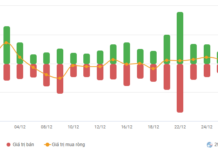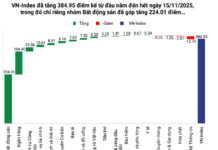“State-Determined Land Prices: A Significant Step Forward”
State-Determined Land Prices: A Major Advancement
In the draft Law amending and supplementing a number of articles of the Land Law, the Ministry of Agriculture and Environment proposes to amend Article 158 on the principles, bases, and methods of land price appraisal. Notably, the draft amendment removes the principle of determining land prices according to market values.
Instead, the state, as the representative owner of land, should exercise control and make decisions on land prices. In the primary market (land allocation, leasing, change of land use purpose, and recognition of land use rights), land prices are determined by the state and are not dependent on consulting results.
Sharing with VietNamNet’s reporters, Dr. Pham Viet Thuan, Director of the Institute of Economics, Resources, and Environment in Ho Chi Minh City, stated that the state’s determination of land prices in the primary market is consistent with the socialist-oriented market economy and is an inevitable trend. Establishing transparent primary land prices will contribute to market stabilization and reduce abnormal price fluctuations.
According to Dr. Thuan, with clear primary prices, applying adjustment coefficients can determine secondary land prices. As a result, the real estate market will operate more stably, preventing sudden price increases and eliminating the mechanism that causes price instability.

According to experts, state-determined land prices create a clear framework, curbing speculation. Photo: Thach Thao |
Meanwhile, Ms. Nguyen Quynh Trang, Head of Savills Hanoi’s Valuation & Advisory Services, stated that the state determining land prices instead of following market principles is a significant adjustment. However, the policy’s effectiveness will largely depend on its implementation and accompanying data.
“If there is a lack of comprehensive and up-to-date information or a disconnect from actual transactions, land prices may not accurately reflect the land’s value. This could impact budget forecasting, create challenges for investors, and lead to inconsistencies between localities, especially without a nationwide land price database,” she said.
However, state-determined land prices can provide a clearer framework for land acquisition, financial obligations, and speculation control. Nevertheless, to ensure objectivity, the role of independent appraisal organizations and reference data based on reality are indispensable.
The draft law distinguishes between the roles of appraisal consulting organizations, appraisal councils, and the People’s Committees of provincial levels – the units that make price decisions. According to Ms. Trang, this is a step forward in terms of institutional reform, helping to reduce conflicts of interest and facilitating objective assessments.
However, this mechanism will only be effective if the appraisal council has the necessary expertise and the role of appraisal consulting organizations is guaranteed to be independent.
Currently, the appraisal council mainly comprises representatives from local departments, and not all members have in-depth expertise or practical experience in real estate appraisal, which may limit the council’s technical critique capacity.
The Savills representative suggested enhancing the capacity of consulting organizations, expanding the involvement of independent experts in the appraisal council, and publicly disclosing the appraisal process, data, and criteria to build market trust.
Cautious Approach to Plot-Level Land Price Tables
Some businesses also expressed concern that removing market principles in land valuation could make it challenging for investors to predict land use costs, a significant factor in financial planning and risk management.
Savills recommended that enhancing the state’s management role does not necessarily mean eliminating market factors altogether. Instead, a flexible pricing framework should be established, allowing market references in areas with good data while maintaining stability in regions with incomplete infrastructure data.
“Maintaining market references serves as a ‘guiding anchor,’ improving predictability and attracting investment,” said Ms. Trang.
Regarding the proposed option of creating a detailed land price table for each plot in areas with digital cadastral maps, this reform is highly regarded as it contributes to transparency in valuation, shortening the time required for land allocation, leasing, compensation, and other procedures.
However, Ms. Trang emphasized that implementing a plot-level price table is not straightforward due to the incomplete and inconsistent nationwide land data infrastructure.
To ensure that the land price table reflects the actual value, multiple data layers must be integrated, including cadastral maps, transaction history, planning, infrastructure, and environmental conditions, into a standardized system with regular updates and quality control mechanisms.
Therefore, she proposed that cities with well-developed digital infrastructure, such as Hanoi, Ho Chi Minh City, and Danang, could pioneer this initiative and gradually expand it to other provinces when they meet the necessary conditions.
Nguyen Le
“Government to Set Land Prices, Moving Away from Pure Market-Driven Model: Savills Expert Weighs In”
“Ms. Nguyen Quynh Trang, Head of Savills Hanoi’s Valuation & Advisory Services, believes that government-led land valuation can establish a clearer pricing framework for land acquisition, financial obligations, and speculation control, especially amidst the current opaque market data landscape.”
The New Move by Buyers Ahead of the New Law Taking Effect on August 1st
“With impending changes to the Real Estate, Land, and Housing Laws, along with stricter regulations on developers, many are rushing to invest in the property market. The belief is that these new laws will result in a scarcity of supply and an increase in prices. So, is it a wise move to get in before these laws take effect?”
Mastering the Art of Price Control
The manufacturing, supply, and distribution businesses are tactfully reducing related expenses to keep prices stable as consumers continue to spend cautiously.











































